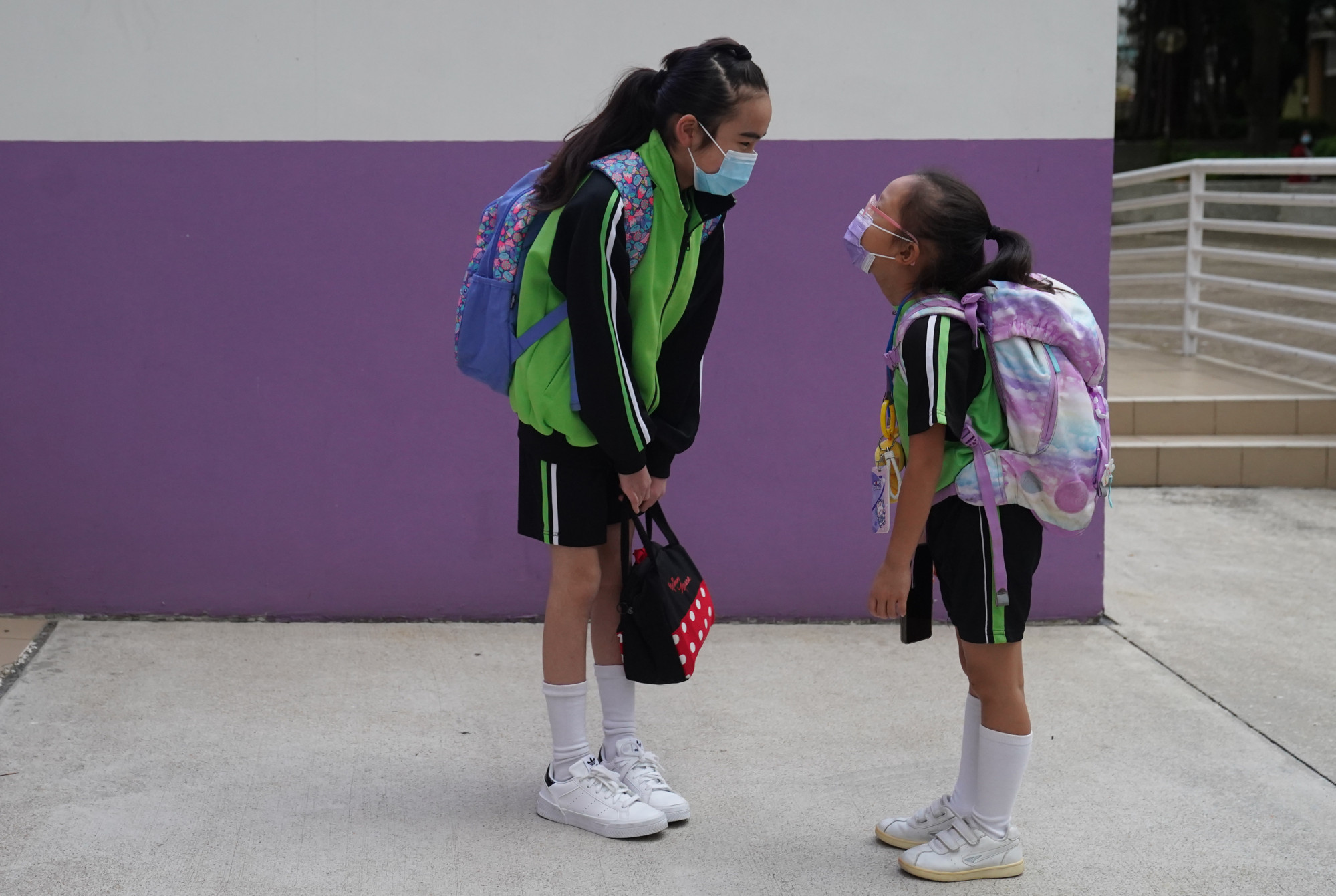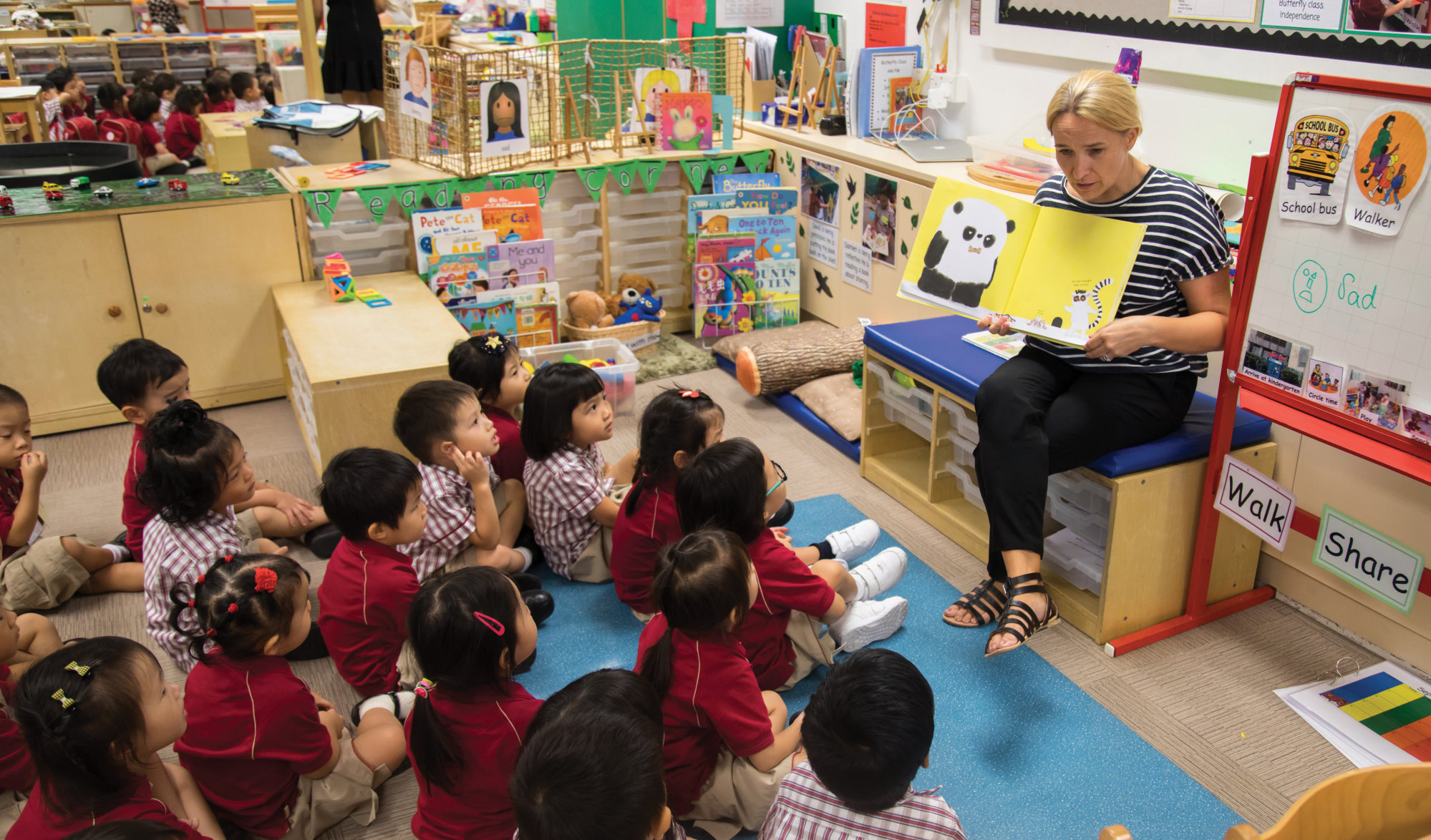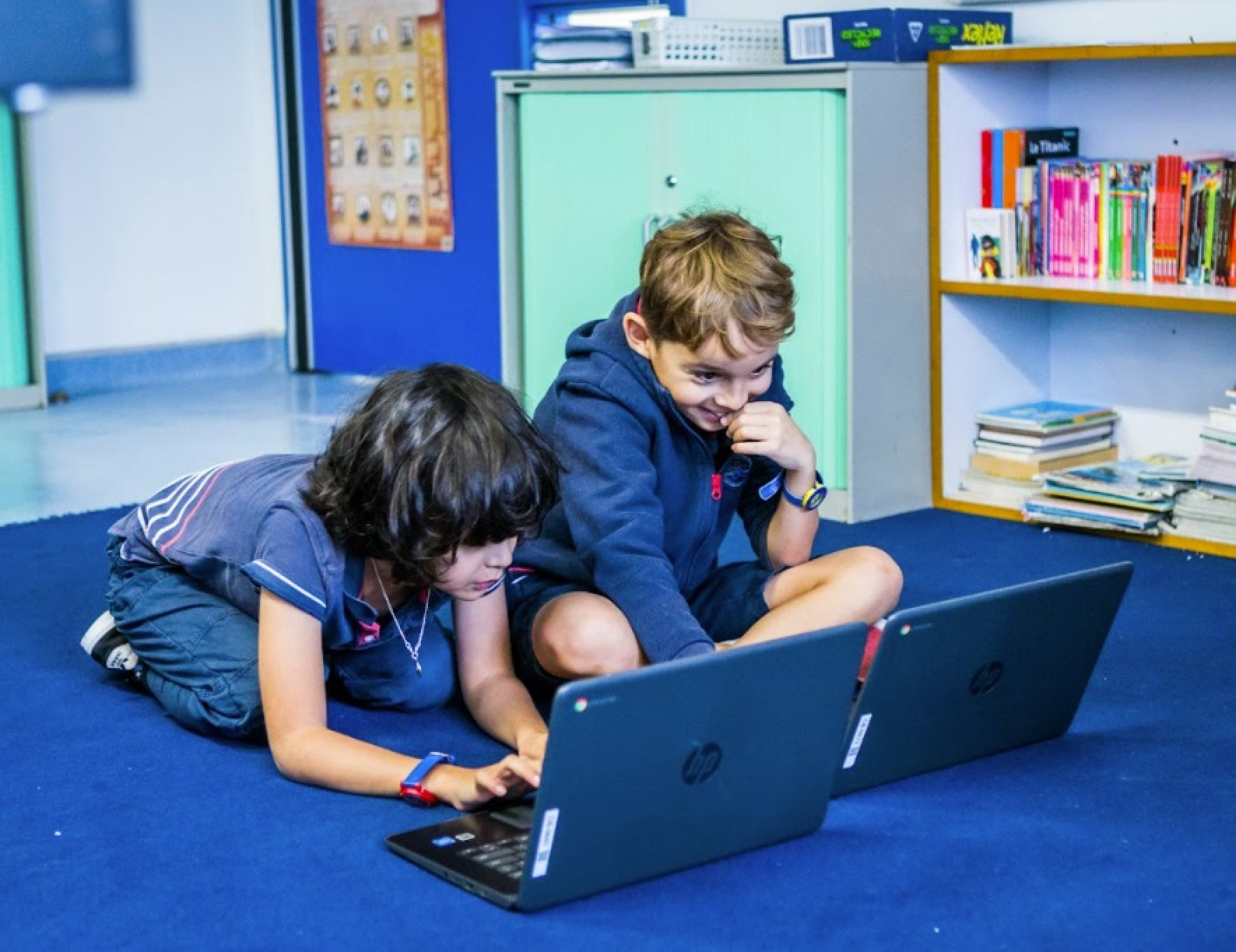
New tech tools are available thanks to the pandemic – now educators are figuring out how to use them together with more traditional activities to build skills relevant to future workplaces
- Hong Kong’s international schools get some of the best results worldwide because they stay on top of technological innovation and educational modernisation
- Belinda Greer, CEO of the English Schools Foundation (ESF), describes an approach that tries to balance Play-Doh with coding and Zoom calls
Education has historically evolved at a steady pace, with curricula gradually updated every few years, depending on new findings from studies among students and faculty. More recently, however, things have been changing at breakneck speed.
Even before Covid-19 a trend started among more affluent schools for students to be given laptops or tablets from an early age. Now, technology and education-based video games are becoming staples of modern curricula, with the old focus on rote learning far less important than holistic development and preparing children for the modern world and ever-changing working environments.
This gives educators the exciting, but never-ending challenge to evolve to provide children with a holistic and relevant education. Schools that fall behind will quickly find their methods becoming obsolete, and their students will suffer because of it.

One of the reasons Hong Kong’s international schools consistently get some of the best results worldwide is that they are constantly on the forefront of technological innovation and educational modernisation. And although they’ve all faced a mighty challenge with the Covid-19 pandemic causing school closures for three years, the lessons learned during this difficult period will last forever.
“The pedagogy of early childhood education has definitely shifted over the last 10 years and more so recently, accelerated by the pandemic,” said Belinda Greer, CEO of the English Schools Foundation (ESF) – the largest international school organisation in Hong Kong. “Because of Covid-19, we have learned how to be a lot more creative and innovative in the way we work with our children via online learning.”
Not all innovations have involved technology, however. Greer said that Hong Kong has often been quite traditional in early years academic learning – focusing on reading and writing skills even when, developmentally, children aged around three or four in kindergarten usually aren’t ready to master these skills.
“At ESF, we have incorporated the idea of playing while learning to keep younger children engaged,” she explained. “Our teachers value sensory play using Play-Doh for example to help the children enhance fine motor skills and support their development. Technology has also been amazing in supporting our children with learning diversity needs using innovations which weren’t around 10 or so years ago.”
The use of technology in classrooms, particularly during early years, is a somewhat controversial topic. Sceptics worry about the early onset of digital addictions, and whether things like tablets are too stimulating for the brain of a developing child.
Greer said it’s ultimately up to schools to use educational technology as a tool, while avoiding the potential dangers and pitfalls.
“With an appropriate level of adult guidance and support, young children can benefit hugely from using technology and devices,” she said. “As educators and parents, we have a responsibility to set parameters and boundaries to ensure child safeguarding and child protection, for example by limiting screen time. We are also preparing children for a world which will be very different from the one we live in today. There are a lot of jobs now that did not exist 10 years ago, and the same will be true 10 years from now.
“Our children might be applying for roles which aren’t around now so we need to nurture those skills that will help children develop and support their curiosity and critical thinking.”
Now that students are using screens in the classroom – and even more frequently during distance-learning – it has become far more important for parents to limit children’s screen time at home. Especially given the fact that the devices and apps keep getting more addictive as time goes by.

“All of us rely on technology more, and if we do not know the answer to something we can just ‘Google it’, so as adults who understand this and have the children’s best interests at heart, we need to play a role in setting guidelines both in school and at home,” Greer said. “It is the parents’ responsibility to – let’s say – have a rule of no screens at the dinner table or no devices after 5pm and set those examples themselves so that parents and teachers can work together to ensure the best outcomes for the children.”
As the experts on the subject, schools must play a large role in helping parents keep up with technological developments and the potential benefits – and dangers – involved. Fortunately, technology has also made it far easier for schools to communicate with parents and, therefore, build strategic partnerships geared towards helping the children.
“In the past, parents would have needed to take time off from work and come to school to have a meeting with the teacher or wait until the official parent-teacher evenings, whereas now, we can easily set up a Zoom call there and then,” Greer explained. “And it’s great to see parents becoming more interested in what’s happening in our schools because information is much more readily available in the form of online learning blogs or schools’ social media channels and schools can stay connected to the parents more easily.”
Greer said that different enhancements and add-ons to technology can make online learning much more engaging for young children. Remote learning, which has become increasingly important during the pandemic, has brought some unexpected benefits. Greer said that teachers and students have learned how to conduct themselves online, and have learned how to be “online performers and entertainers”.
All in all, the process taught staff how to keep students engaged with their learning using technology, and these lessons will continue in the classroom.
Coding is another area in which technology has influenced modern education. It is well known that it is better to have children learn additional languages early on, and coding is considered the language of programming. According to Greer, it is actually a misconception that coding is something that should be reserved for secondary school students.
“Coding can start from such a young age,” she said. “At ESF, for example, our youngest learners experiment with coding and learn about direction by programming a robot to move from one point to another. Programming the robots involves using a series of arrows pointing in different directions which helps children to understand directional language and concepts, and develop basic programming skills. These early experiences are valuable in themselves, but could also spark an interest in subjects like robotics.”
Still, for all of the world’s technological developments, the number one priority for early-years educators should always be the physical, cognitive, emotional and social development of children. And much of this will always take place in a classroom, with a caring, well-trained teacher, with simple, proven tools and activities that have proven to work over the centuries.
“Nothing can replace the in-person positive interaction between children and their peers, their teachers and their parents which you cannot get over Zoom, for example,” Greer said. “There’s nothing better than for us to see joyful interactions in our children which can only happen in our schools.”

Ross Armitage, head of primary, international stream, French International School of Hong Kong (FIS), said that Covid spurred a new wave of innovation that led to the school receiving the prestigious IEYC (International Early Years Curriculum) and IPC (International Primary Curriculum) accreditation despite doing mostly distance learning – something that is nearly unheard of.
“We constantly came up with innovative ways to keep children engaged,” Armitage said. “We used Google Classrooms, slides and interactive quiz-lets to make lessons more fun and interactive, and our teachers were constantly modifying their lessons – particularly in subjects like music or drama or French.”
The school also went the extra mile in hiring outside specialists – such as illustrators and authors – which was done to infiltrate the students’ normal week and create new interaction and learning opportunities.
“We started coming up with weekly themes like ‘online kindness week’ or ‘online book week’ and we were constantly adding innovation to our weekly timetable to help develop a holistic, well-rounded package for children,” Armitage said. “This was necessary for children to succeed not just in their normal subjects, but for their well-being.”
He said that FIS and many other schools have been forced to undergo a radical process of trial and error – which had led to several breakthrough innovations.
“Hong Kong schools are dealing with something totally alien and different to normal practice, so our staff have had to undergo a massive learning and training process, and it’s been a real challenge,” Armitage said. “But our school has always been very innovative with its curriculum and I believe that this innovative mindset is what has allowed us to get through this remote learning period.”
FIS has chosen to adopt the mindset that there is a silver lining to every cloud. Now, the entire staff is more well-versed in topics like digital safety, and have benefited from professional development courses revolving around the latest educational research and technology.
Still, like Greer, Armitage believes there is no substitute for face-to-face learning. And he hopes to take all of the innovations the school has adopted over the past few years and apply them in the classroom full-time.
“The thought of continuing distance learning is very dangerous,” he said. “Of course the government has to react the way they feel fit, but we have to recognise there’s going to be an impact on the children.
“It’s the school’s duty to think of new innovations and ways to support the children, and keep moving forward.”
